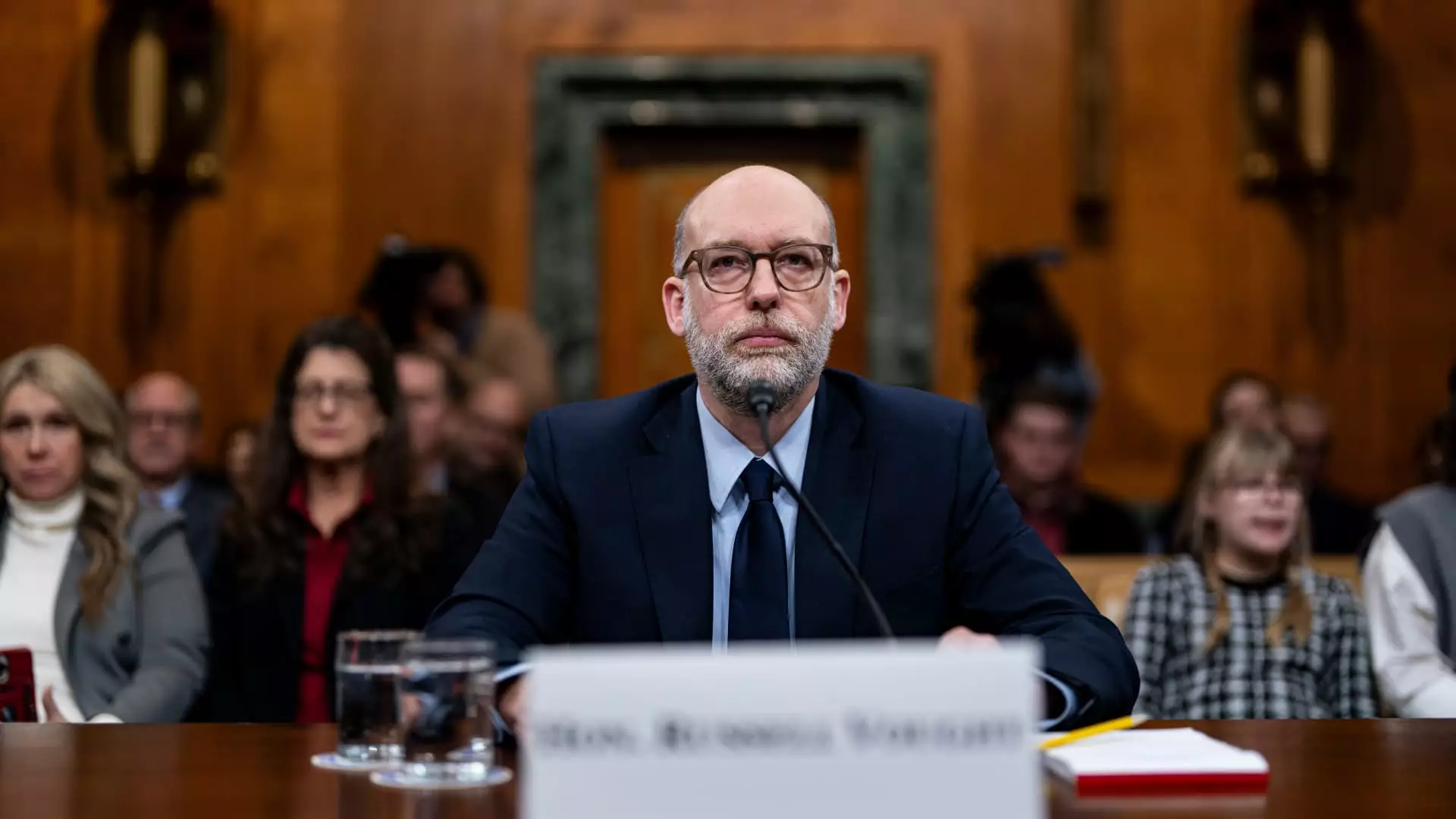The recent confirmation of Russell Vought as the budget director under President Donald Trump has raised significant concerns within a deeply divided U.S. Senate. In a narrow 53-47 vote, Vought was appointed to a position that wields substantial influence over federal funding decisions. His confirmation, however, came amid fierce opposition from Democrats who labeled him as a radical right-wing figure, arguing that his views could undermine checks and balances within the government. The contentious nature of this appointment underscores the growing polarization in American politics, as each side vehemently defends its perspective while criticizing the other’s motives.
Impoundment: A Legal and Ethical Dilemma
Central to the controversy surrounding Vought is his stance on the 1974 impoundment law, which limits a president’s ability to withhold congressionally approved funds. During his confirmation hearings, Vought consistently stated that he believed this law to be unconstitutional, a viewpoint that alarmed lawmakers across the political spectrum. This assertion not only raises legal questions but also poses a potential threat to the established legislative process, inviting fears of executive overreach. The fact that even Republican leaders hesitated to fully endorse Vought’s position highlights a rare moment of bipartisan concern regarding the balance of power in the federal government.
The White House’s recent memo to freeze billions in federal grants and loans added another layer of complexity to Vought’s confirmation. Though the memo was soon rescinded following a court ruling, it sparked anxieties about the potential for future unilateral decisions that could jeopardize critical government services. This incident reflects Trump’s broader strategy to align funding with his administration’s priorities, particularly in areas related to diversity and inclusion—a tactic that could have long-lasting implications for various federal programs. Critics argue this freeze serves as a harbinger of Vought’s influence in shaping federal budgetary policies that may neglect essential social services.
Democrats have leveraged Vought’s connections to the Project 2025 initiative to illustrate the broader implications of his policies. This hardline policy framework has been criticized for advocating cuts to pivotal institutions, including the U.S. Agency for International Development and impairing the independence of prosecutors at the Justice Department. Senate Democratic leader Chuck Schumer’s remarks on the Senate floor encapsulated the fears many hold towards Vought’s intentions, depicting him as a figure determined to attack foundational government operations. Such rhetoric emphasizes a broader narrative that characterizes Vought’s appointment as a significant threat to U.S. governance.
Despite the opposition, Vought’s supporters in the Republican party champion his experience and expertise in managing budgetary issues. They argue that his leadership can bring much-needed accountability to federal spending, particularly in identifying wasteful expenditures. Senate Majority Leader John Thune articulated assurances that Vought would prioritize fiscal responsibility and budget efficiency. This perspective aligns with broader Republican efforts to scale back government spending, but it simultaneously raises questions about the potential neglect of social programs that rely heavily on federal funding.
As Russell Vought embarks on his tenure as budget director, the political landscape remains fraught with tension and uncertainty. The ramifications of his confirmation extend beyond personal ideology; they reflect an ongoing struggle over the balance of power between Congress and the executive branch. Critics warn that his hardline approach could lead to significant cuts in vital programs, jeopardizing the fabric of American society. The coming years will undoubtedly unveil the true impact of Vought’s policies, making it essential for all stakeholders to remain vigilant as this contentious chapter in U.S. governance unfolds.

Leave a Reply